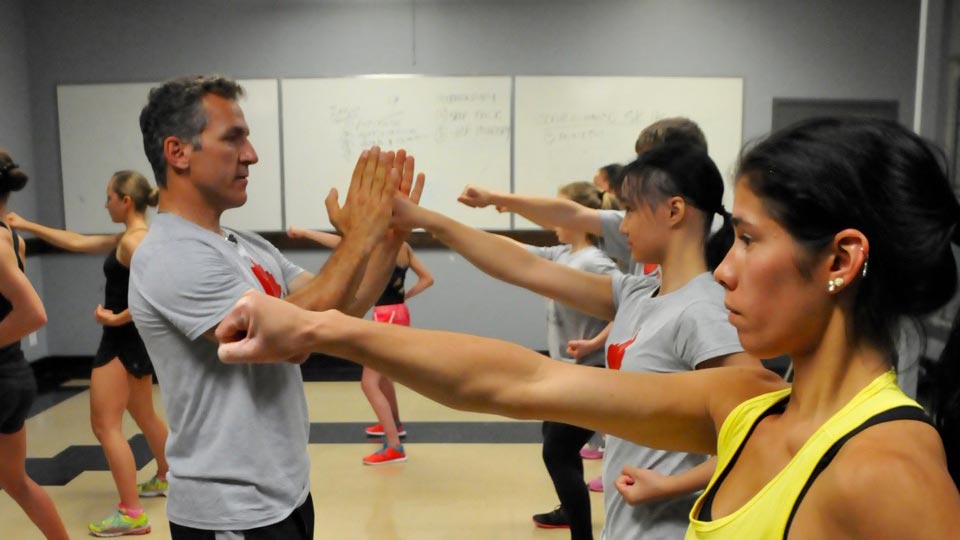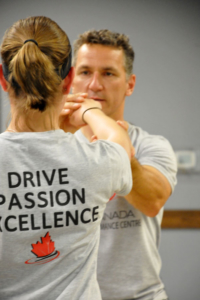Photos : Gladys Orozco
Elvis Stojko can’t believe it’s been that long.
It’s been more than a quarter-century since Stojko introduced himself to the world in Halifax, NS, and the three-time world champion wonders where the time has gone.
This week, Stojko returns to the picturesque Maritime city, serving as the official Athlete Ambassador for the 102nd edition of the Canadian Tire National Skating Championships. In the role, Stojko will handle speaking engagements, media interviews and in-venue activations and, as always, make a little time for competing athletes and his legion of fans.
Stojko will always hold a soft spot in his heart for Halifax, host city of the 1990 ISU World Figure Skating Championships. A fresh-faced youngster still a couple of weeks shy of his 18th birthday, Stojko, fresh off a silver medal performance at the national championships in Sudbury, Ont., arrived in Nova Scotia primed for his first senior worlds.
That week in Halifax, the world was introduced to 17-year-old Elvis Stojko. When he left town, Kurt Browning had racked up his second of three straight world titles, and Stojko was a very respectable ninth
“Halifax – wow, what a week that was,” says Stojko with a laugh. “It was a dream week for me, just an amazing experience. There is no doubt it was a turning point for my career.
“I’ll never forget it. The place was sold out, the fans were just packed in there, and they were going ballistic (for the free program). It was just one of those epic moments.”
“I’ll never forget, the previous year at junior worlds, I was eighth overall. Suddenly, here I was, skating against Kurt, and Viktor Petrenko, and Todd Eldridge – guys I always watched on TV – and I was ninth best in the world, and sixth in the long (program). It was pretty surreal. Everything just kind of snowballed after Halifax. It just kept building and I never really looked back.”
After leaving Halifax. Stojko set off on a gradual climb to the top of the skating world. At the 1991 world championships, he became the first skater to land the quad-double jump combination. The following year, he took home his first world medal with a bronze and followed that up with a silver in 1993.
In 1994, Stojko made it to the top of the skating mountain, winning his first of three world titles over a four-year span.
For good measure, Stojko also became the first skater to complete a quad/triple combination at the 1997 Champions Series Final in Hamilton, Ont.
In addition to his three world titles and seven Canadian senior crowns, Stojko has a pair of Olympic silver medals in his trophy case (1994, 1998).
It was after his second Olympic silver in Nagano – where he skated with a painful groin injury – that Stojko hit tough times. Over the next few years, Stojko admits he fell into a long stretch of depression. Needing a break, Stojko went to visit a friend in Mexico in 2001.
It was what he needed: a chance to relax, escape the merciless Canadian winters and get a little privacy.
He ended up buying an apartment on the spot.
In 2009, he met Gladys Orozco, a former Mexican figure skating champion, while at a skating competition. Stojko and Orozco were married in Las Vegas a year later. The couple lived in Ajijic, a stunning village about an hour from Guadalajara.
But eventually, Canada called him home.
“I never really left,” he says of the return to Canada. “Sure, I was living in Mexico, but I have always been a Canadian. That never changed.
“It was time to come home.”
Since touching down back in Canada, Stojko has been working with Skate Canada, taking young skaters under his wing with on-ice training and mental preparation. Stojko, a martial arts expert, has also given kung fu lessons to his young charges.

In his limited spare time, Stojko continues to skate in shows while chasing another of his passions: professional kart racing at the national and international level. Stojko also recently dipped his toe in the Broadway show pond, starring as manipulative lawyer Billy Flynn in Chicago: The Musical.
Despite his busy schedule, Stojko is focused on giving back to a sport that has given him so much.
As he was coming up through the ranks as a youngster, Stojko says he often turned to 1987 world champion and two-time Olympic silver medallist Brian Orser for advice.
Stojko has never forgotten that Orser always seemed to find time for him, and he plans on paying it forward.
“If I can help guide them and get them pointed in the right direction, and teach them some of what I have learned, well, that’s what it’s all about. Giving something back.”
“I was fortunate enough to have others I could go to, guys like Brian, who were busy with their own careers but always took time to help out,” adds Stojko.
“These kids today are going to have their own hurdles. It can be a daunting process. You worry about what people think, you want to please everyone.
“If I can help guide them and get them pointed in the right direction, and teach them some of what I have learned, well, that’s what it’s all about. Giving something back.”
And as Stojko gets set to arrive in Halifax in his Athlete Ambassador role, the memories of 1990 are sure to come flooding back.
His advice for those competing this week at the Canadian Tire National Skating Championships?
“It sounds cliché, but just embrace the moment,” says Stojko.
“These kids are the best in Canada. They are here for a reason. A few of them are going to have a magical week, but some will not. For a lot of these kids, this week is going to be a learning experience. You learn, you adapt and you come back stronger.
“Just go for it. This is your chance. Don’t hold anything back.”
And who knows. Perhaps a few skaters will be leaving Halifax with memories of their own.


